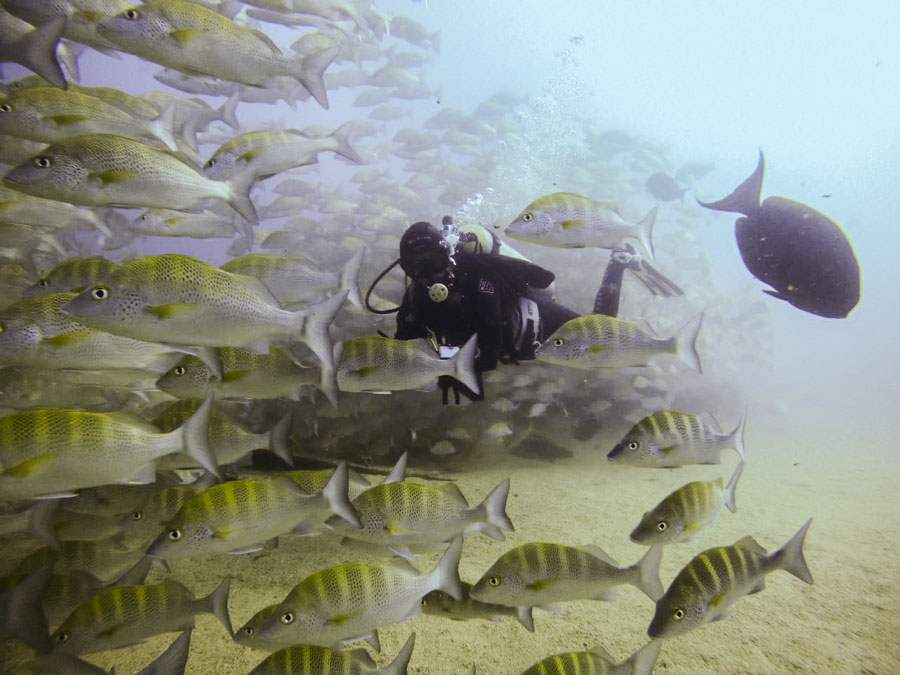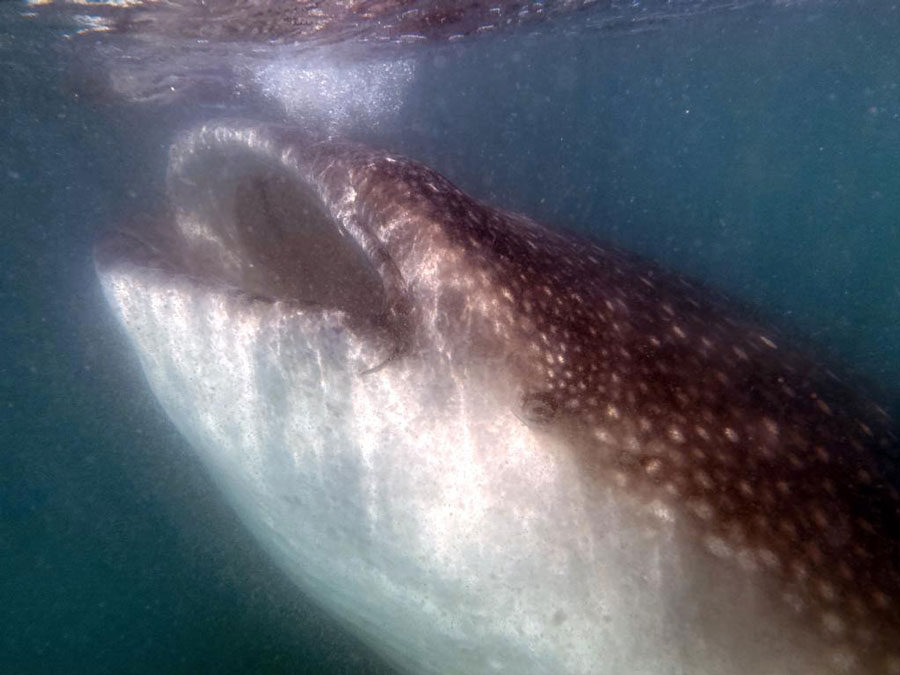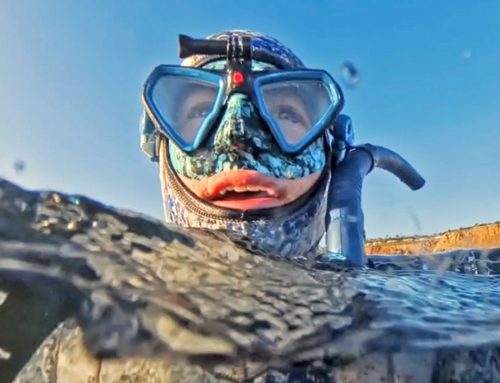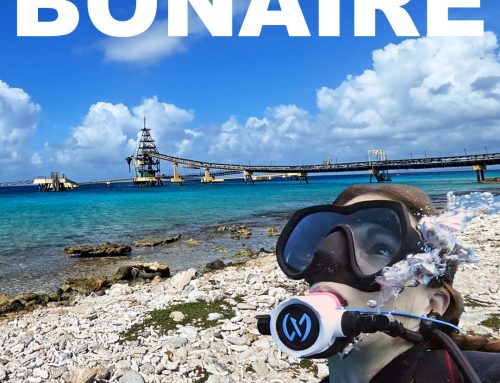I’m a scuba instructor, and I have been living in my van for over two years. During that time, I lived with the bare minimum, sharing honestly about my living conditions so that others who are interested in this lifestyle can see that fancy van builds are not required to get started. Living on the road is cheap when you’re okay with giving up certain luxuries. However, I’m finally at a place with my work and finances where I was able to make some upgrades to my rig, so here is I have currently have in my scuba mobile.
Dive Gear
Obviously, you’ll need to bring all of your diving equipment with you, so dedicating a space to scuba gear is necessary. In addition, it’s crucial to have a ‘Save a Dive‘ kit with all the necessary spares, like o-rings, fin straps, and mask straps, to fix minor equipment malfunctions on the spot.
You’ll also need to bring a dive float and flag, which are essential for safety. The float helps mark your location in the water, while the flag lets boats know there are divers in the area. Another critical safety item is emergency oxygen, especially if you plan on diving in remote areas.
Gear Storage and Organization
When living in a van, space is at a premium, so you need to be smart about storing and organizing gear. You don’t want your diving equipment to take over your entire vehicle, so take the time to plan and build solid storage solutions.
One option is to build a space dedicated to your larger items like dive tanks, BCDs, exposure suits, and fins. If you’re not building fixed storage in your vehicle, you can use bins or bags to keep your gear organized and easily accessible.
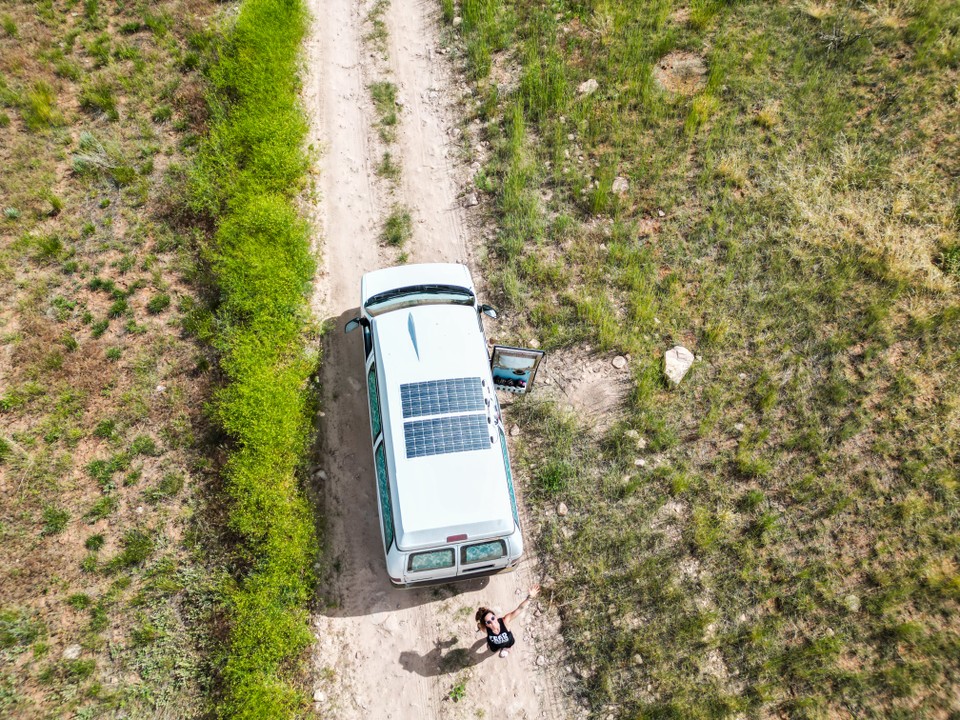
Keeping Things Dirt and Sand-Free
After a long day of diving, the last thing you want is to track sand and dirt into your vehicle. So, invest in a changing mat to make getting out of your wet gear easier. Install an outdoor shower (or have a water jug) to wash off any leftover sand or dirt.
Finally, for the sand you inevitably miss, have a hand broom or cordless vacuum to clean up the mess.
Rinsing Yourself and Your Gear
Speaking of water, salt water is a killer for your scuba equipment. Even though you may have plans to go back to a dive shop where you can properly wash everything, it’s always best to rinse while your gear is still wet from the dive. Also, you may not be interested in showering after a dive, but rinsing your face in fresh water after a dive will make a difference in your comfort.
Also, hydration is key when you’re spending long days in the water, so apart from your gear rinsing water, you should have plenty of drinking water to keep you safe.
Drying Your Gear
You don’t want to pack up your wet gear and store it in your vehicle as this can lead to mold and mildew. So, invest in some good-quality hangers that you can use to dry your gear outside, preferably in the shade.
Pro-tip: I hang my dry suit out of direct sunlight with an accessories scuba diving hanger and keep a collapsible bucket underneath to keep the gloves and neck seals from touching the ground.
Electricity
Having a power source is also really helpful on dive days. You can definitely cover your light and camera charging needs with a portable system like Jackery. I relied on this system for two years, but because I live and work in my van full-time, I finally opted for a proper battery installation. Some of my battery build was shared in shorts on YouTube (playlist is here). However, I shared a full-length build video with my Patreon supporters, so if you want to see my struggles of learning how to work with electricity, check out the different membership options here.
The Bathroom Situation
Many dive sites will have public bathrooms, however, some places only provide portapotties or the great outdoors. Now, for those who need to sit down or squat to pee, this could be an issue. For over 2 years, I used the bottle and she-wee combination to do my business, but if I needed to poo, I was out of luck.
This leads me to my latest upgrade: a composting toilet. There’s a container for liquid and another for solids. This isn’t as gross as it seems. Honestly, it has improved my comfort and safety because I’m no longer going into public restrooms at night.
Regardless if you’re going to move into your vehicle full-time or simply want a useful tool for your dive days, follow these tips, and you’ll be set.
Join me on upcoming Azul Unlimited dive expeditions
See what trips are coming up. I always give my community first dibs on spots, so you can sign up for Patreon (and get trip discounts) or my email list to be the first to know about new expeditions in the future.
